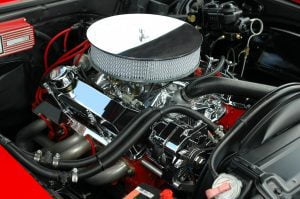Extending Your Car’s Engine Lifespan


Extending Your Car’s Engine Lifespan


Introduction
The engine is the heart of any vehicle, and maintaining its health is essential for the longevity and performance of your car. Regular maintenance and proper care can significantly extend your car’s engine lifespan, saving you from costly repairs and replacements. In this article, we will discuss the steps you can take to ensure your car’s engine stays in optimal condition and continues running smoothly for years to come.
1. Regular Oil Changes
Regular oil changes are vital for maintaining the health of your car’s engine. Engine oil lubricates the moving parts, reduces friction, and carries away heat and contaminants. Over time, oil breaks down and becomes less effective, potentially causing engine damage. Here’s what you need to know about oil changes:
1.1 Follow the Manufacturer’s Recommendations
Refer to your car’s owner manual to determine the recommended oil change intervals. Typically, this is every 3,000 to 7,500 miles or every 3 to 6 months, depending on your driving habits and the type of oil used.
1.2 Use High-Quality Oil
Use high-quality motor oil that meets or exceeds the manufacturer’s specifications. Synthetic oils are generally recommended for their superior lubrication properties and thermal stability.
1.3 Replace the Oil Filter
Always replace the oil filter during an oil change. The oil filter helps remove contaminants and debris from the oil, preventing them from circulating through the engine.
2. Maintain Proper Fluid Levels
Aside from engine oil, other fluids play a crucial role in your car’s engine performance and longevity. Here are the key fluids to monitor and maintain:
2.1 Coolant
Coolant, also known as antifreeze, helps regulate engine temperature and prevent overheating. Regularly check the coolant level and top it up if necessary. It’s also essential to flush and replace the coolant as recommended by the manufacturer.
2.2 Transmission Fluid
Transmission fluid lubricates and cools the transmission system. Follow the manufacturer’s guidelines for checking and changing the transmission fluid. Neglecting transmission fluid maintenance can lead to premature wear and damage.
2.3 Brake Fluid
Brake fluid is crucial for the proper functioning of your vehicle’s braking system. Check the brake fluid level regularly and ensure it is within the recommended range. Contaminated or low brake fluid can compromise braking performance and safety.
3. Practice Gentle Driving Habits
Your driving habits have a direct impact on the engine’s lifespan. By adopting gentle driving practices, you can reduce strain on the engine and minimize wear and tear. Consider the following tips:
3.1 Avoid Aggressive Acceleration and Braking
Rapid acceleration and hard braking can put unnecessary stress on the engine components, such as the pistons, valves, and brakes. Gradually increase speed and maintain a safe following distance to avoid sudden braking.
3.2 Warm Up the Engine
Allowing the engine to warm up for a few minutes before driving helps circulate oil throughout the engine and ensures proper lubrication. However, avoid excessive idling as it wastes fuel and increases emissions.
3.3 Avoid Overloading the Vehicle
Excess weight puts strain on the engine, transmission, and suspension system. Avoid overloading your vehicle with unnecessary cargo to prevent premature engine wear.
4. Regular Maintenance and Inspections
Routine maintenance and inspections are crucial for identifying potential issues before they become major problems. Here’s what you should prioritize:
4.1 Follow the Maintenance Schedule
Refer to your car’s owner manual and follow the recommended maintenance schedule. This includes scheduled inspections, tune-ups, and component replacements.
4.2 Regularly Inspect Belts and Hoses
Inspect the condition of belts and hoses regularly. Cracked, worn, or damaged belts and hoses can lead to engine overheating and breakdowns.
4.3 Check the Engine Air Filter
A clogged or dirty air filter restricts airflow to the engine, reducing performance and fuel efficiency. Check and replace the engine air filter as recommended by the manufacturer.
5. Monitor Warning Signs
Being aware of warning signs can help you detect potential engine issues early on. If you notice any of the following signs, it’s crucial to address them promptly:
Unusual engine noises, such as knocking or tapping sounds
Engine misfires or rough idling
Excessive exhaust smoke
Decreased engine power and acceleration
Engine overheating or constant high engine temperatures
Dashboard warning lights indicating engine problems
Conclusion
Taking steps to extend your car’s engine lifespan is a wise investment in the longevity and performance of your vehicle. By following regular maintenance routines, practicing gentle driving habits, and addressing warning signs promptly, you can keep your engine running smoothly for many miles to come. Remember to adhere to manufacturer recommendations, prioritize regular oil changes, maintain proper fluid levels, and conduct routine inspections. With proper care, your car’s engine can serve you well for years to come.








